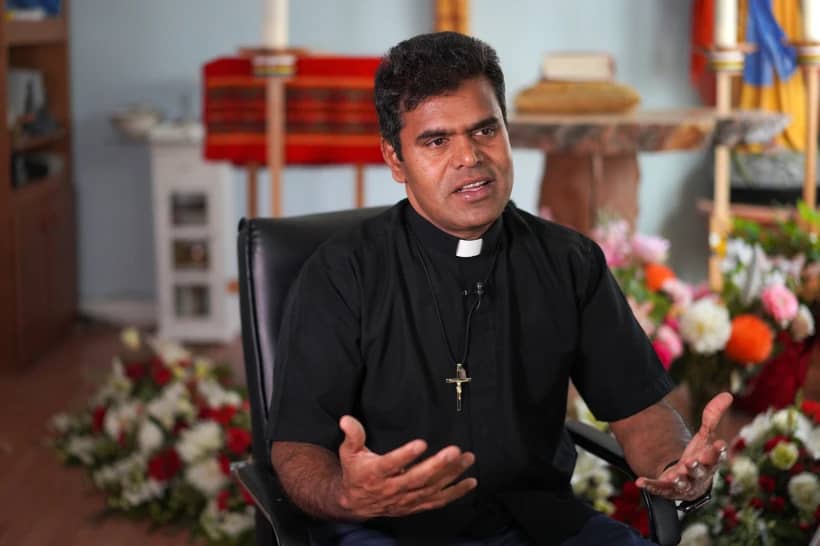Honduran churches are facing problems conducting pastoral work due to the power of gangs, according to a leading Catholic charity.
Honduras has a population of over 9.5 million people, and the population is almost equally divided between Catholics and Protestants.
“Honduras is the second poorest country in Latin America, with 75 percent of the population living in poverty and high levels of inequality,” said Veronica Katz, the project coordinator for Central America at Aid to the Church in Need (ACN), recently visited the Central American country.
“The country is facing a serious energy crisis, with constant blackouts to ration electricity. Furthermore, extreme climate conditions have led to seasons of drought, or, on other occasions, torrential rain and massive floods, which are terrible for agriculture,” she told ACN.
Nonetheless, she says here is an even greater threat: The violence of the “maras,” extremely violent Central American gangs that operate in the drug market.
“The Honduran ‘maras’ control practically all of it. Families have trouble keeping businesses afloat, because of the ‘war tax,’ a fee that the ‘maras’ impose on citizens, which is often impossible to pay,” Katz said.
She said during the ACN visit to the capital Tegucigalpa she learned that in some areas, it is very difficult to carry out pastoral work, especially with all the conflicts among the “maras,” since the different gangs fight over territory.
“We visited a parish in a part of the city controlled by the gangs, which makes the Church’s work extremely complicated. The bishops’ conference has issued a call for peace and asked the government to quell the insecurity in the country. All this makes the Catholic Church’s pastoral work more important than ever,” Katz explained.
Honduras has long suffered from political instability. A coup d’état took place in 2009, causing a crisis.
Juan Orlando Hernández was elected in 2014 on a law-and-order platform and served until January 2022. However, he was soon sent to the United States on drug trafficking and money laundering charges, and was convicted in March of this year.
Hernández’s wife, former first lady Ana García de Hernández, announced days after his conviction, said she plans to seek the country’s presidency next year. Xiomara Castro, the wife of the man ousted in the 2009 coup d’état is currently serving as the president of Honduras.
Katz said despite the challenges in Honduras, the country’s Catholics are deeply committed to their parishes and actively participate in social activities.
“I was surprised to see how people who work tirelessly all day, in their coffee or cornfields, or taking care of livestock, spend all afternoon in their parishes,” she told ACN.
“Their calendars are full of religious activities that take up their spare time. We found communities that were full of life and very well-organized. Instead of living an individual faith, they live their faith together, as a community, which is very beautiful. There are motivated priests, committed laity, and structured pastoral care. When you have this combination, you really begin to see positive results and pastoral fruits,” Katz said.
However, she admitted things are far from perfect for the Church.
“The lack of priests is a problem. In Honduras, priests serve four times as many people than in France, for example. Additionally, education levels are low; transportation outside of the cities is difficult; and there is hardly any formation in the parishes. The faithful are very poor, and there is a great lack of catechetical material. They don’t have the means to purchase it,” she said.
“And the government makes it very difficult for foreign religious to obtain visas. They must fulfill all sorts of requirements and present many documents, which makes it difficult to enter and remain in the country,” Katz said.
In her conversation with the ACN office, she noted that the growth of Protestantism is affecting the Catholic Church in Honduras.
“Hondurans are a people of great faith. They need God. However, as I mentioned, there are not enough Catholic priests to fulfill everybody’s spiritual needs,” she said.
“The few priests there are already have a very heavy workload. Honduras has the highest percentage of Protestants of any country in Latin America. There has been a remarkable increase in the number of Evangelical churches, and Protestants currently outnumber Catholics,” Katz explained.
“Many of these Protestant sects are funded by groups in the United States, and their pastors go to places that are underserved by Catholic priests. Catholics are drawn to those sects basically out of habit, rather than conviction,” she continued.
“The Church is making a big effort to educate its faithful, so they can better resist this invasion of other denominations and sects.”













